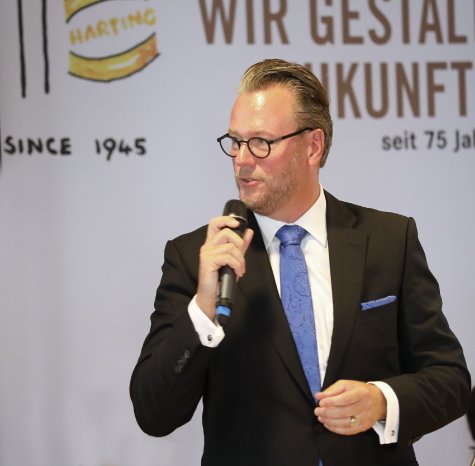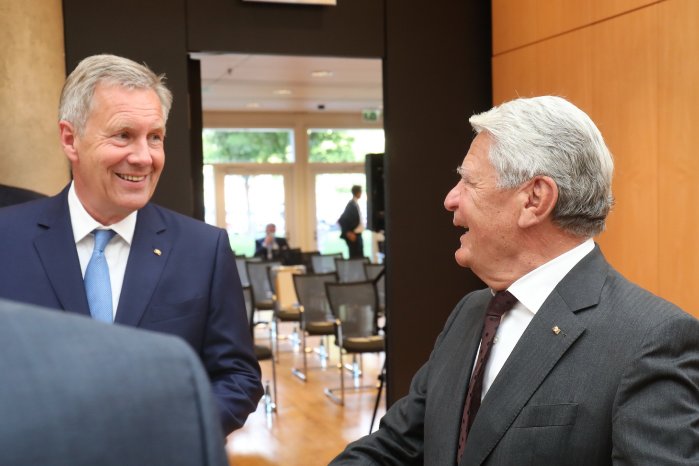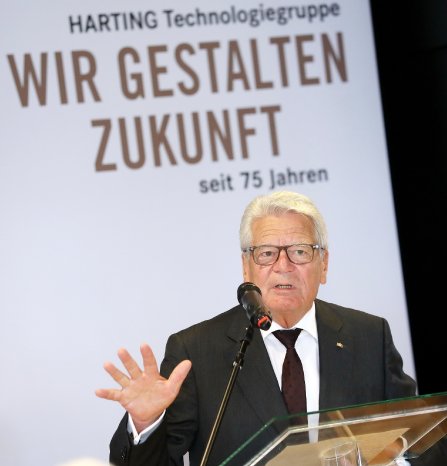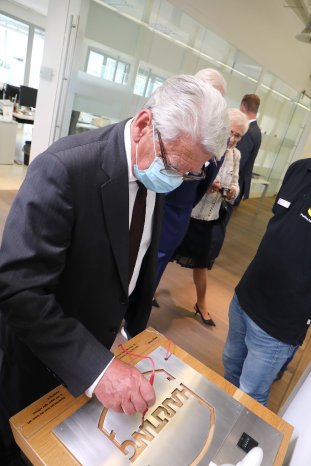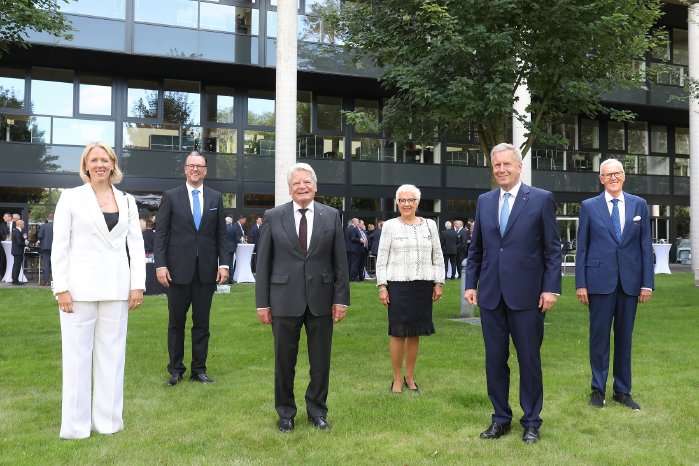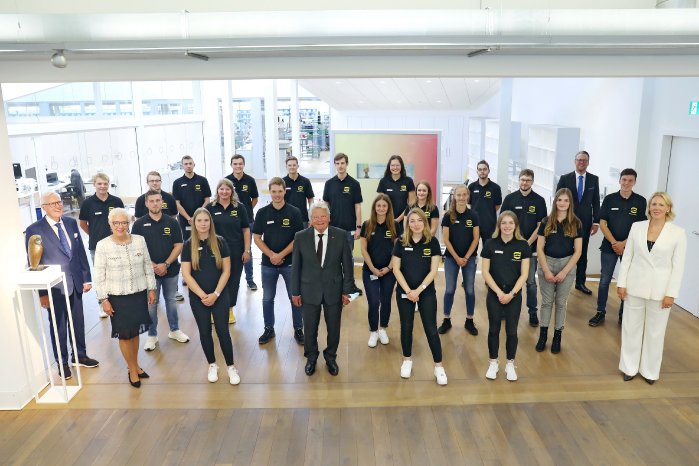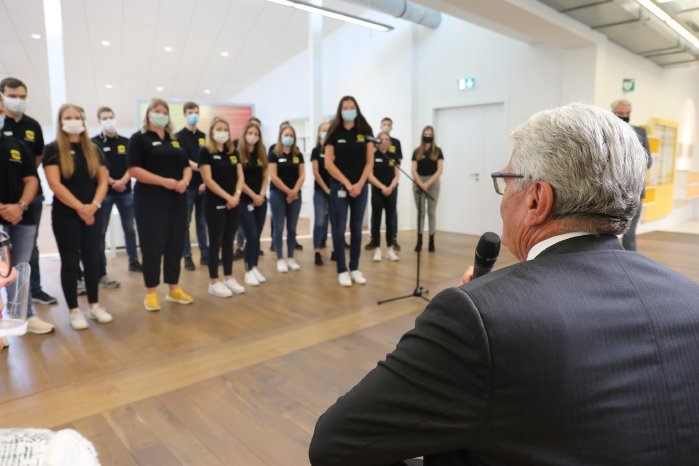In view of a German society that would appear “satiated and fatigued in parts” (“the country’s spirit is on the brink”) as the former headed of state commented, it is all the more remarkable to experience HARTING as decidedly and firmly looking to the future with courage, optimism and genuine joy, and bearing responsibility as “the most beautiful form of freedom.” Family owned and managed companies like HARTING are a “stable support of society”. Government cannot replace their activities.
Preceding Joachim Gauck, Margrit Harting – with a joyful “Oh, happy day” – had greeted around 100 invited guests, including the chairman of the board of Deutsche Messe AG, Dr. Jochen Köckler, his predecessor Sepp Heckmann, discus world champion and Olympic champion Robert Harting, as well as the presidents of Private Hochschule für Wirtschaft und Technik and of the Osnabrück University, Prof. Dr. Dennis De and Prof. Susanne Menzel-Riedl.
In his speech, Dietmar Harting, the former long-standing Chairman of the Board of Management and son of the company founder, cast a look back on the beginnings of the company, which just a few months after the end of the war had started to manufacture household appliances such as energy-saving lamps, hotplates, lighters, waffle irons and irons in a small workshop and a dozen employees. The company’s first buyer brought raw materials in from the Rhineland, stowed away in a backpack while riding a coal waggon; the wife of the company founder delivered the company’s goods by bicycle, accepting food as payment from farmers in the surrounding area. The young firm developed rapidly, soon concentrating on automotive electrics, medical equipment, jukeboxes, record players and tape recorders. With the advent of the patented Han® connectors in 1956, the company, which was gradually relocated to neighbouring Espelkamp from the 1950s onwards, went on to write technology history.
Speaking at the Botta building in Minden, the headquarters of the German sales company, Philip Harting, grandson of Wilhelm Harting, who took over the management of the family business from his father Dietmar in 2015 and manages the company together with his sister and parents, thanked the former and present employees throughout the world for their valuable contributions to the success of HARTING. The company, with its production facilities and sales companies on all continents, faces global competition and needs the support of the political arena in order to strengthen the locations in the region and make them even more attractive. This is the only approach that will enable HARTING to grow in the future in the age of digitalization, make the most of its opportunities, while co-determining the course of technology and shaping the future with technologies for people, as laid down in the HARTING vision formulated in 1996. No efforts will be spared in ensuring that the baton will be passed on to the fourth generation when the time comes.
The mayors of the cities of Minden and Espelkamp, Michael Jäcke and Heinrich Vieker (“Espelkamp would not be conceivable without HARTING”), the District Administrator of the Minden-Lübbecke district, Dr. Ralf Niermann, as well as the District President of Detmold, Judith Pirscher, emphasized HARTING's role in the technology sector, as an attractive employer and leading-edge, ultra-modern training company, and as a promoter and generous supporter of the region in their welcome addresses. The musical accompaniment of the ceremony was by members of the Northwest German Philharmonic Orchestra and the New Life Gospel Choir.
In Espelkamp, numerous trainees gave Joachim Gauck a warm, enthusiastic welcome in the afternoon. The former Federal President visited the NAZHA training centre, inaugurated in 2008 and extended in 2015, where the company's future employees are being prepared for their professional careers in two dozen training courses or in dual study programmes. At several stations, such as the NAZHA Company, trainees from different technical focus areas informed Gauck about their practical training and subsequently had the opportunity to put some questions to their prominent guests.
The last highlight rounding up the exceptional festive day was a short reception of the former Federal President in the town hall of Espelkamp, where he signed the Golden Book.
